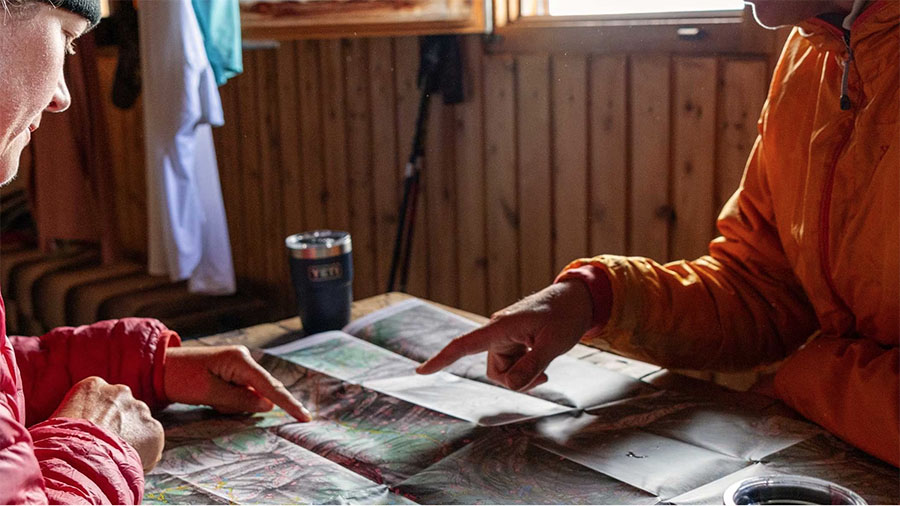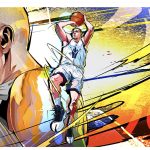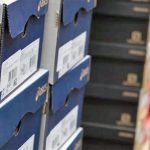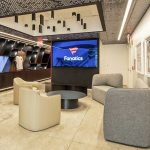Yeti Holdings, Inc. slightly reduced its sales guidance for the year due in part to cautious ordering from wholesale partners but still expects sales to return to double-digit sales gains in the fourth quarter as the brand recovers from a massive recall and experiences positive sell-throughs at U.S. wholesale channel across drinkware and coolers & equipment segments.
Under its updated guidance, sales for the fourth quarter are expected to climb 10 percent following flat sales reported Thursday for the third quarter and a 4 percent decline in the second quarter.
On a call with analysts, Matt Reintjes, president and CEO, described the third quarter as “another strong quarter” for Yeti, particularly when compared to a strong year-ago period that included the full benefit of its soft cooler lineup while this year’s sales have been significantly impacted by the stop sale of the soft coolers included in the recalls initiated during the first quarter of 2023. The year-ago third quarter also benefited from strong wholesale replenishment following pandemic-related supply chain challenges.
“We also saw the strength of our brand and our point-of-sale data with consumer demand meaningfully outpacing our reported sales,” said Reintjes. “While we expect consumers to continue to be more discerning with spend, we’ve seen the positive signs that they are highly receptive to new products.”
In the third quarter ended September 30, sales were flat at $433.6 million, exceeding Wall Street’s consensus of $425.2 million and in line with Yeti’s outlook.
Mike McMullen, SVP, CFO and treasurer, said Yeti was “pleased” with the sales performance with several factors impacting top-line growth, including Yeti not having several of its top-selling soft cooler products for most of the quarter, including during the key summer months. He also noted that Yeti accelerated the launch of fall seasonal colors in Q3, which led to wholesale shipments starting in Q2. Yeti also faced challenging comparisons with overall sales in the year-ago period up 20 percent with wholesale sales ahead 25 percent as inventory levels were restocked in the year-ago period. The year-ago restocking particularly benefited cooler sales.
“There are clearly a number of dynamics that have impacted our reported growth rate on a quarter-to-quarter basis this year,” said McMullen. “But one aspect of our business that we continue to be pleased with is the strong consumer demand that we have consistently seen across our major channels and product categories. In the third quarter, we saw positive sell-through growth in our U.S. wholesale channel across both Drinkware and coolers and equipment.”
From a channel perspective, direct-to-consumer sales grew 14 percent to $259 million, representing 60 percent of total sales. Growth within DTC was led by Yeti’s Amazon business, including a successful Prime Day, though sequentially higher growth rates were seen in each of Yeti’s other DTC businesses.
In e-commerce, Yeti saw strong increases in new and returning customers, as well as in the overall number of transactions. This was partially offset by a lower average order value in Q3 versus the prior-year quarter. At a product category level in DTC, strong performances were seen in cargo, drinkware and hard coolers, which more than offset the impact of the recall in soft coolers.
Wholesale sales decreased 16 percent to $174 million with declines in both coolers and equipment and drinkware. The decline reflected the recall and significant sell-in comparison in the year-ago period. McMullen added, “We were very pleased with our growth on a sell-through basis.”
By category, coolers and equipment sales decreased 8 percent to $172 million. Among the positive developments, Yeti’s Go Boxes have outperformed expectations since their first quarter launch. Growth in bags was supported by the addition of Camp Green and Cosmic Lilac colors. In soft coolers, the newly designed M Series of soft coolers was reintroduced early in the fourth quarter with initial shipments landing in the third quarter. McMullen said, “Despite not having a full assortment yet, we are pleased with the early results from the launch of these important products.”
Drinkware sales increased 6 percent to $253 million with growth in DTC offsetting a decline in wholesale.
“We continue to see our innovation in Drinkware resonate with consumers and put us in a position to capitalize on trends in the market,” said McMullen. “For instance, we expanded our Yonder product lines with new sizes and lid offerings and launched new color-match lids in our Rambler stainless bottle line. In addition, we had incredibly successful fall color launches in Camp Green, Cosmic Lilac, and Power Pink.”
Yeti is also finding initial success by positioning drinkware “into more group sharing and entertaining options,” rather than for individual use. Related innovations include products designed for coffee occasions with three smaller size cups and mug, a new hydration solution with the Rambler 42-ounce Straw Mug, and the introductions of new entertaining options with the Yeti Cocktail Shaker and Wine Cellar.
Internationally, sales grew 20 percent to $68 million, representing nearly 16 percent of total sales with double-digit gains across all three regions; Europe, Australia and Canada.
Adjusted gross margins in the quarter improved 670 basis points to 58.0 percent. Positive drivers this quarter included 480 basis points from lower inbound freight, 150 basis points from lower product costs, 110 basis points from favorable channel mix, and 20 basis points from all other impacts. These gains were partially offset by 110 basis points from higher promotions associated with its Amazon Prime Day promotion.
SG&A expenses for the quarter increased 20 percent, or to 41.3 percent of sales compared to 34.4 percent in the same period last year. Non-variable expenses increased 370 basis points as a percent of sales, driven by a rebuild of incentive compensation costs for employees, sustained investments in areas such as headcount and demand creation to support future growth and the impact of the recall on the top line. Variable expenses increased 320 basis points as a percent of sales, primarily driven by higher Amazon marketplace fees tied to higher growth in the channel and increased outbound freight expenses tied to higher e-commerce sales, including smaller average order sizes.
Operating income decreased 3 percent to $71 million while net income also decreased 3 percent to $53 million, or 60 cents per share, topping analysts’ consensus expectations of 54 cents.
Looking ahead, adjusted sales are expected to increase approximately 4 percent in the full year, versus the previous outlook of between 4 percent and 5 percent. Expected adjusted sales are inclusive of an approximate 500 basis points unfavorable impact on its growth rate from the stopped sale of the products affected by the recalls. Expected adjusted sales also include $18.8 million of sales from recall-related gift card redemptions during the second and third quarters of 2023.
McMullen said the narrowed sales guidance reflects cautious ordering patterns in the wholesale channel, slower growth in corporate sales following a strong 2022, and lower average order values in e-commerce.
Adjusted operating income as a percent of adjusted sales is now projected to be approximately 16.0 percent, up from the previous outlook of between 15.5 percent and 16.0 percent. The change is due to improving margins tied to lower inbound freight costs and favorable product costs.
Adjusted EPS is now projected to reach $2.32, versus the previous outlook of between $2.23 and $2.32, reflecting a 2 percent decrease, with earnings growth beginning in the fourth quarter of the year.
Photo courtesy Yeti
















